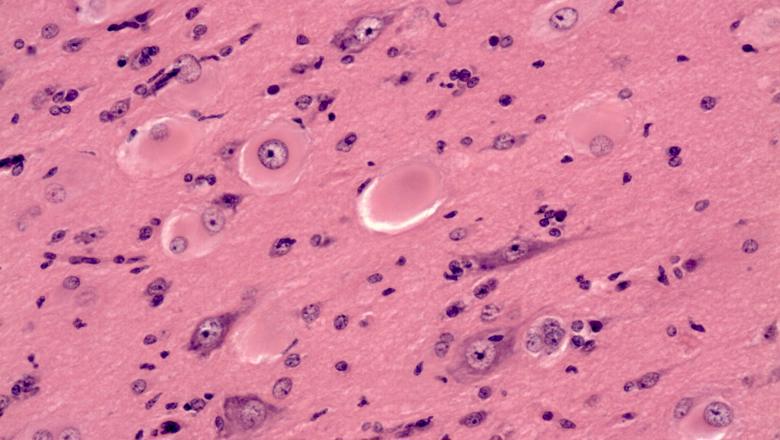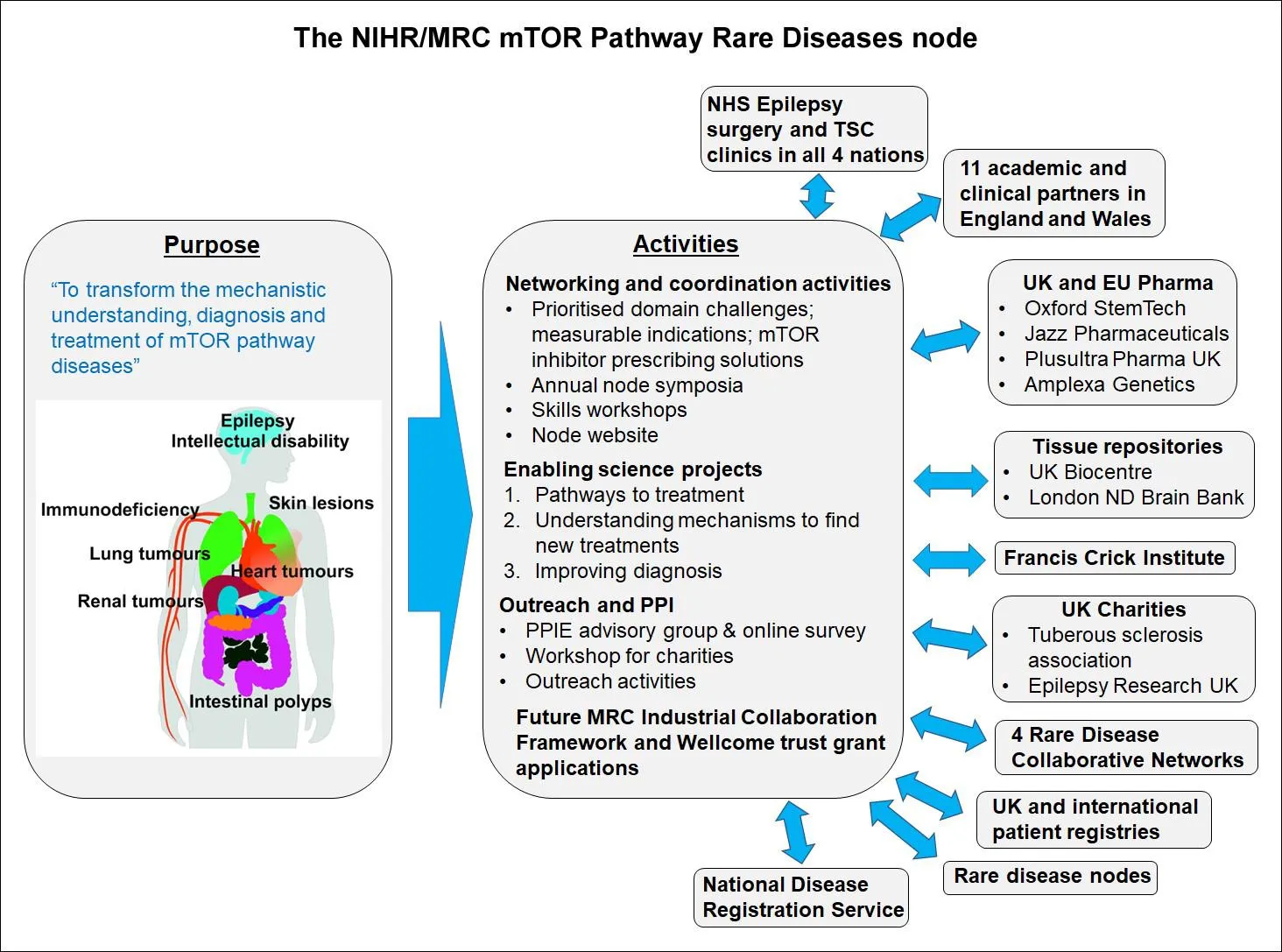I am very excited to be leading the mTOR Pathway Diseases node and to be part of the NIHR/MRC UK Rare Diseases Research platform. All 14 different rare mTOR pathway diseases share a common molecular mechanism but patients are treated by different, disconnected, medical specialities and clinics. Our ambition over 5 years is to transform the mechanistic understanding, diagnosis and treatment of mTOR pathway diseases.”
Professor Joseph Bateman, Lead Investigator
04 July 2023
£1.1 million NIHR/MRC node established to study mTOR pathway rare diseases
Professor Joseph Bateman, Professor Deb Pal and Dr Laura Mantoan-Ritter received the funding to establish the mTOR Pathway Diseases node as part of the new NIHR/MRC UK Rare Disease Research Platform.

The mTOR Pathway Diseases node is a part of the £14 million initiative by the National Institute of Health and Care Research (NIHR) and the Medical Research Council (MRC) to coordinate and address tractable challenges in rare diseases. Rare diseases are defined as diseases with a prevalence of less than one in 2000 individuals with both genetic and non-genetic origins.
The mTOR pathway rare diseases encompass 14 known rare diseases, affecting approximately 10,000 individuals in the UK. The mTOR pathway is a set of molecules in our cells that sense a variety of inputs and regulate processes such as cell growth and metabolism. Rare genetic mutations affecting the mTOR pathway can cause it to go into overdrive, resulting in diseases. Symptoms vary greatly across these diseases from benign tumours in multiple organs to brain malformations causing epilepsy.
As they share a common pathway, these diseases can potentially be treated using the same drug. However, this is not currently the case, meaning that some individuals are not gaining access to treatment that could improve their conditions. The mTOR Pathway Diseases node will unite the rare mTOR pathway diseases as a single group to expedite research and treatment development. This will connect patients with researchers and clinicians to develop new diagnostic tools and drug trials.
The mTOR Pathway Diseases node is led by Professor Joseph Bateman from the Department of Basic and Clinical Neuroscience (BCN). Professor Deb Pal (BCN) and Dr Frances Elmslie (St George's) are the co-investigators, with Dr Laura Mantoan-Ritter (BCN) as the deputy lead. Dr Charlotte Tye (Psychology) will lead the Public-Patient Engagement Involvement (PPIE), a key part of the node activities, working with partner charities. The node will bring together 13 UK universities, research institutions and NHS trusts in partnership with Tuberous Sclerosis Association, Epilepsy Research UK, the National Disease Registration Service in NHS England and industry partners including Oxford StemTech, Jazz Pharmaceuticals, Plusultra Pharma and Amplexa Genetics.

The UK Rare Disease Research Platform has been established with a £14 million investment over five years by the MRC and NIHR. It is made up of a central administrative hub and 11 specialist nodes based at universities across the UK.
For more information, please contact Annora Thoeng (School of Neuroscience Senior Communications and Engagement Officer)




